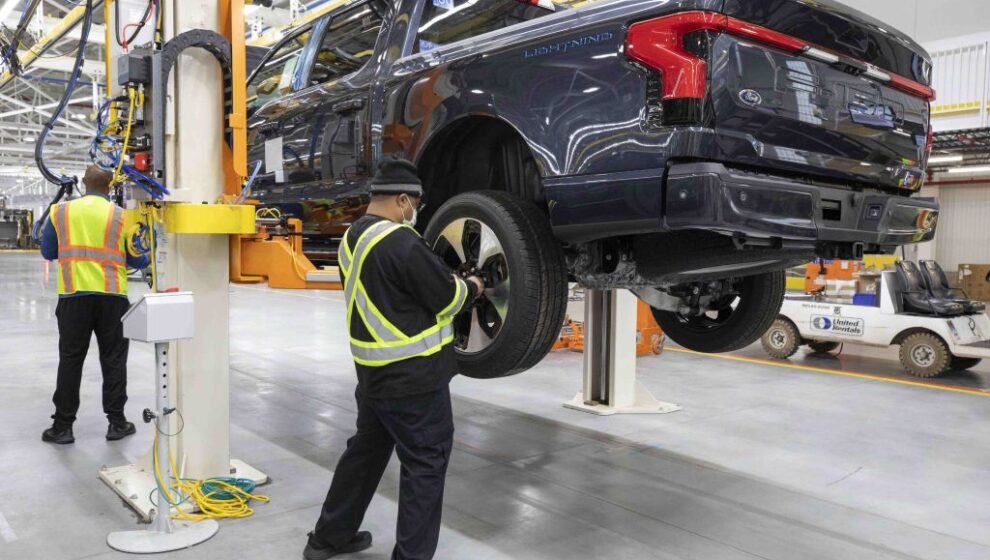The federal government has announced a $9.2 billion loan to expand domestic electric vehicle (EV) battery production for Ford Motor and one of its partners.
Key Details
- On Thursday, the Department of Energy announced it would offer a conditional loan to build three manufacturing plants in Kentucky and Tennessee that will produce batteries for Ford and Lincoln EVs.
- The loan contributes to an $11-billion joint venture between Ford and Korean-owned SK Battery America—called BlueOval SK.
- The loan represents the largest government-backed automaker loan since the 2009 financial crisis bailouts, Bloomberg reports.
- The goal is to expand EV production for Ford from 132,000 annually to 2 million by 2026.
Why It’s Important
Thursday’s announcement marks one of the largest federal commitments to clean-energy transitioning since the signing of the Inflation Reduction Act last August, which committed $369 billion to transition the American economy to net zero emissions by 2050.
The U.S. government is attempting to completely transition the automotive industry toward EV production by 2035, building new infrastructure to support millions of new vehicles, and reducing the number of gas-powered vehicles on the road. The act also offers $7,500 tax rebates for EVs.
The transition would also have an effect on the U.S.’s ongoing tensions with China, allowing American automakers to catch up to Chinese EV production while creating thousands of U.S.-based factory jobs in southern states like Kentucky and Tennessee.
Notable Quote
“The goal of the program is not innovation but to get more of the supply chain to be manufactured in the U.S.,” Loan Programs Office director Jigar Shah tells Bloomberg.
Backing Up A Bit
Ford began building new factories to expand EV production in Tennessee and Kentucky, having begun production on a $5.6 billion mega campus outside Memphis and expanding production of EV models like the F-150 Lightning.
The Problem
As we previously reported, the EV production ramp-up may be prematurely optimistic. Limited access to rare-earth minerals means that battery production may stall until regular sources for these materials are available and capable of being mass-produced. However, EVs have a high price tag and retain value over time, making it more difficult for middle- and lower-class Americans to afford these new vehicles.
Several high-profile Toyota engineers and executives have warned that the push for EVs may be unlikely to be achieved and that gas-powered vehicles will continue to remain necessary for the coming decades.
Plus, it is a significant amount of taxpayer money to infuse into the economy at a time when the federal government is generating huge deficits and trying vigorously to fight inflation.

